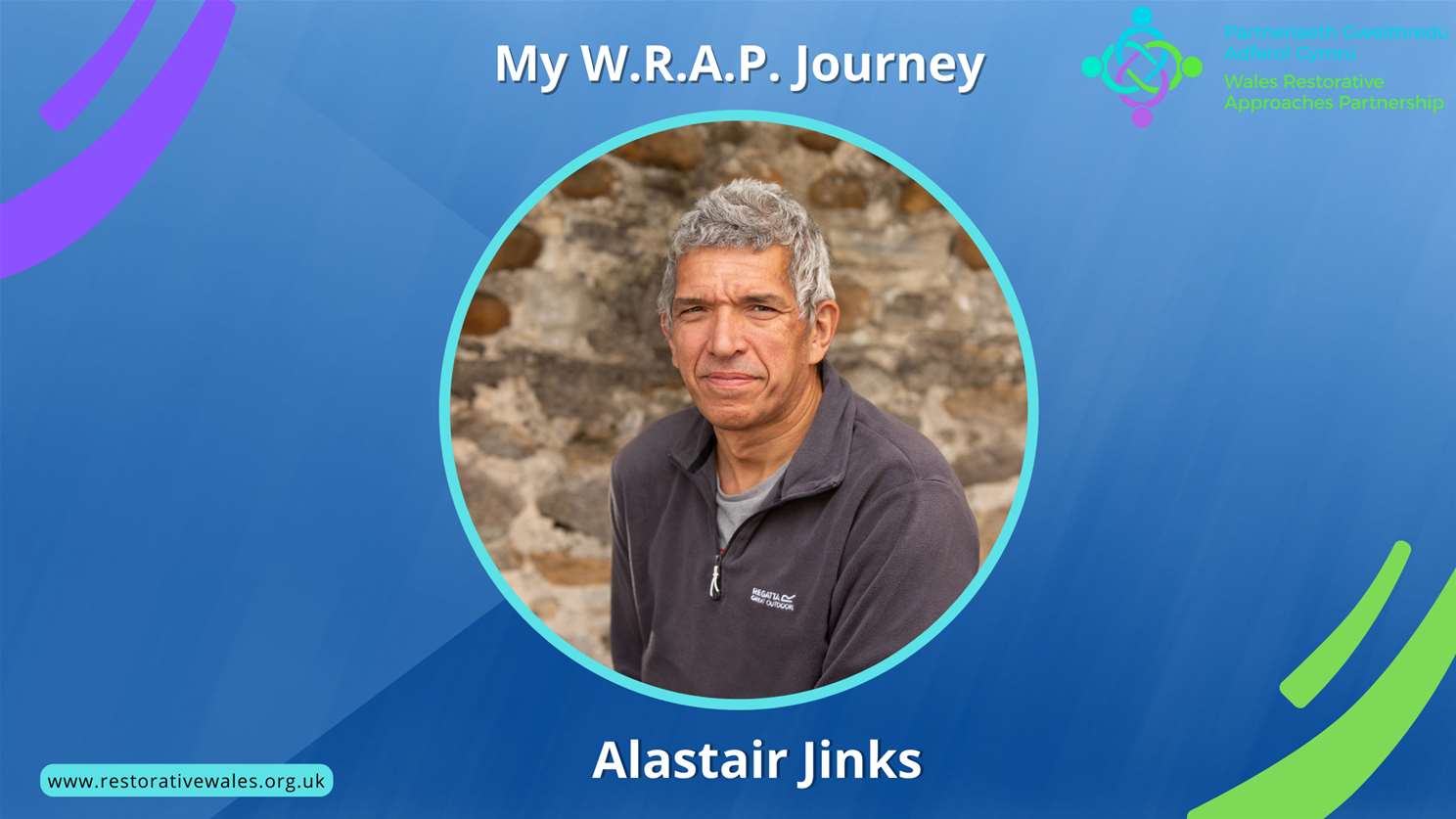Hello everyone.
My name is Alastair Jinks
I became involved with WRAP and have now completed 138 hours of volunteering and hope to get it to 200 by our next AGM, and over 500 hours of volunteering overall.
I attended a job interview in September 2018 with Julia and Leanne. Sadly, I didn’t get the job, but they were so impressed with my skills that I was offered a voluntary position which I was happy to do.
I started another voluntary job just before this one, which in the long term ended up with me getting a paid job which in turn led me to propose an agenda item about disability confident companies in this years’ AGM
I now have an AGORED Level 2 Qualification in Restorative Approaches after I attended a three-day training course with our colleague Vince in 2019. I helped to develop the new manual around accessibility.
I will hopefully become an experienced practitioner in this field and have drawn on experiences from other past training courses with Genius Within, Engaging and Storytelling and Life Coaching
I feel Restorative Approaches are a great thing as it avoids punishment and exclusion which has not always been the case throughout my life thus far. I will be using some examples from my personal life to illustrate these approaches.
All the staff at WRAP are excellent and supportive. I suffer from Dyspraxia. It affects my fine motor skills, and it also has similarities with ADHD including forgetfulness and making careless mistakes. It is known as a hidden disability and means it takes me longer to pick things up. In 2019 I made a VLOG with Ted and when I was practicing this talk with Julia, she told me to look up into the camera or at my audience, but I looked up at the ceiling as sometimes with dyspraxia I take things too literally.
It also affected my performance levels in most of my jobs.
Thankfully most of my line managers have been very supportive and made allowances for the above and my frustration if I can’t get my point across to work colleagues or friends. I feel my performance levels have now greatly improved and have had a lot of positive feedback in the past three years about the quality of my work/.
I do feel my strengths are being organised, having a structured approach to all my tasks. I don’t mind repetitive tasks and I am very reliable. I am brave, provide empathy, creative and sensitive (although this is also sometimes a weakness in a business environment.)
I am also comfortable and accurate with IT and computer packages.
I went to a mainstream school then college until 1991. Like Ted on occasion, I struggled to fit in.
I then went to Queen Elizabeth’s Foundation for disabled people in Leatherhead between 1991 and 1993. Even though I was well supported, there were no such things as Reasonable Adjustments throughout my educational lifetime.
In the past work and school have sometimes been very tough for me emotionally and stressfully, but thankfully my parents have always been very supportive. I always had lots of friends who were supportive as well, and they used empathic listening skills which help.
Growing up, it was a lot tougher for disabled people than it is in today’s climate. Thankfully things became better as there was the Disability Discrimination Act in 1995 then the Equality Act in 2010,
Anyway, a little more about me in my spare time I play golf, swim, and do lots of classes at the gym, Zumba being my favourite as it involves dancing which I love. In September 2019 joined a local drama group I am learning skills to improve my public speaking.
Ted and I are both live entertainers, Ted is a comedian, I do Karaoke and have a range of between 40-50 different songs. This provides an outlet for my emotions and hopefully get parts in some productions of my theatre group no matter how small within the next couple of years and once read the news and narrated a play when I attended a BBC Tour
I was voted the most inspirational person at my leisure centre in 2015 and I am a Tournament Director at my bridge club and a keen golfer.
Where I have seen restorative core, values are when I apply for jobs. My recent training helps me answer such a question if it comes up in an interview.
What I would like to see in the future is restorative approaches being implemented in my future work and my personal life as it would help explain my needs to future employers and friends.
Hopefully it would help change their mindsets.
In turn the public at large could have a greater awareness of disability and develop a non-judgemental approach and further implement the points made by my colleagues at this conference.
Listening to my personal experience would help them identify on a personal level from someone who has been through this process, rather than some generic examples or just training manuals. It could help improve organisational culture in a business environment if needed and I feel a Ted Talk series would help accomplish this. I am hoping to do a Ted talk at some point in the future.
If you are interested in learning more about volunteer oppotunities at W.R.A.P or the training we provide, email us at contactus@restorativewales.org.uk for more information!




